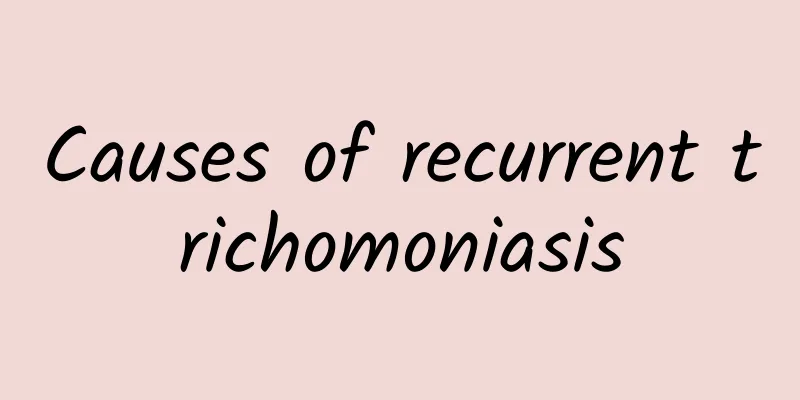What are the causes of amenorrhea?

|
What are the causes of amenorrhea? 1. Disease Mainly including severe tuberculosis, severe anemia, malnutrition and other wasting diseases. Unique endocrine diseases, such as "obesity, reproductive incompetence, malnutrition" and so on; adrenal, thyroid, pancreatic and other effects, such as adrenal, thyroid, pancreatic and other dysfunction. The influence of these reasons may not lead to menstruation. However, as long as the disease is cured, menstruation will occur naturally. 2. Atresia of the lower reproductive tract For example, in the cervix, vagina, hymen, labia, etc., some parts are congenitally locked, or the locked parts are caused by acquired injuries. Although menstruation occurs, menstrual blood cannot flow out. This situation is called hidden or pseudo-amenorrhea. Locking of the lower part of the reproductive tract can be completely cured after treatment by a doctor. 3. Hypoplastic reproductive organs Some people are born without ovaries, or their ovaries are poorly developed and cannot produce estrogen and progesterone, so the endometrium cannot change regularly and there is no endometrial shedding, so there is no menstruation. Some people are born without uterus, or their endometrium is poorly developed, or their endometrium is damaged. Even if their ovaries are functioning well and their estrogen and progesterone secretion is normal, they will not have menstruation. 4. Tuberculous endometritis This is because tuberculosis invades the endometrium, causing inflammation and damage to the endometrium to varying degrees, eventually resulting in scar tissue and amenorrhea. Tuberculous endometritis should be treated promptly without delay. 5. Pituitary or hypothalamic dysfunction The pituitary gland can secrete gonadotropin, which can regulate ovarian function and maintain menstruation. If the pituitary gland is dysfunctional, it will affect the secretion of gonadotropin, which in turn affects ovarian function. Ovarian dysfunction can lead to amenorrhea. Hypothalamic dysfunction can also lead to amenorrhea. There are many reasons for hypothalamic dysfunction, such as mental stimulation, sadness, fear, tension, fatigue, environmental changes, cold stimulation, etc. Amenorrhea caused by the hypothalamus is more common. |
<<: Does bilateral ovarian cysts affect pregnancy?
>>: Will emotional instability lead to irregular menstruation?
Recommend
What can I eat to get rid of uterine fibroids? What can I eat to get rid of uterine fibroids?
Uterine fibroids are common benign tumors in gyne...
What causes congenital absence of vagina?
Some female friends will be born without vagina, ...
What are the things that must be done before abortion?
Many people choose to have an abortion after an u...
How to prevent bacterial vaginosis
If you want to prevent bacterial vaginosis, you f...
Eat out for extra protection and choose high-quality local ingredients from CAS
With the change of social patterns, the proportio...
There are many good ways to prevent adnexitis in life
As a common gynecological disease, adnexitis will...
Does minimally invasive cervical erosion hurt?
Does minimally invasive surgery for cervical eros...
Live and move as long as you live, how to prevent sports injuries? Keep these 4 principles in mind
"To live, you have to move." For the sa...
What should patients with pelvic effusion pay attention to after laparoscopic surgery?
Pelvic effusion is a common gynecological inflamm...
Do you know what ectopic pregnancy is?
As more and more patients with ectopic pregnancy ...
What are some ways to identify irregular menstruation?
The judgment of menstrual irregularity is general...
Do menopausal women need contraception?
As living standards continue to improve, the meno...
Frequent use of cosmetics can cause uterine fibroids
Love of beauty is women's nature, and using c...
It is necessary for people to master the prevention methods of uterine fibroids
At present, the incidence of uterine fibroids is ...
What is the main cause of uterine fibroids?
The frequent occurrence of uterine fibroids is ve...









